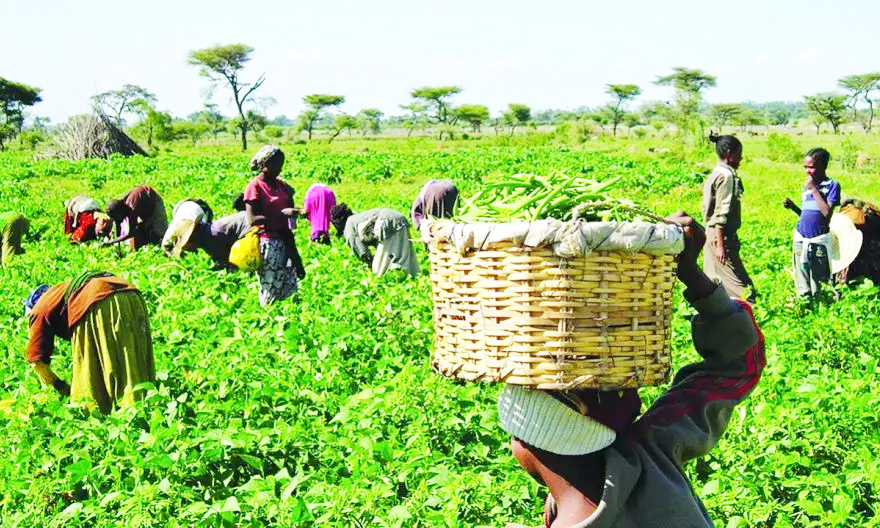With Nigeria’s current food inflation at 23.65 per cent year-on-year as of May, 2023, with hardly any increase in income over the past year, it means Nigerians’ purchasing power for food has been eroded by 23.65 per cent over the period.
Coupled with the dire situation, a critical condition to producing food, security, is being grossly undermined by wars, banditry and other criminality all over the country. Natural conditions, including the effects of climate change are also playing a part.
Consequently, Nigeria is facing a severe food insecurity crisis, as highlighted by a recent alarm raised by the Food and Agriculture Organization (FAO).
The FAO predicts that during the Lean Season from June to August 2023, approximately 25.3 million Nigerians will experience acute food insecurity, surpassing the 2022 forecast of 19.45 million. This alarming situation calls for immediate attention and proactive measures from the government and other stakeholders to prevent further loss of lives and farmlands.
The FAO report points to widespread flooding in 2022 as a major contributor to the worsening food security situation. The floods affected 33 out of Nigeria’s 36 states, resulting in the displacement of over two million people and causing significant damage to more than 676,000 hectares of farmland. These adverse weather conditions have led to low harvests and increased the risk of food insecurity in the country.
Insecurity is another critical factor hampering food security in Nigeria. Conflicts between farmers and herders have resulted in the deaths of many farmers and the displacement of approximately 3.17 million people, limiting farmers’ access to their lands. Insecurity in the northeastern states of Borno, Adamawa, and Yobe (BAY) and incidents of banditry and kidnapping in states like Benue, Kaduna, Katsina, Sokoto, and Niger have further hindered access to food. Out of the 17 million food-insecure individuals in January, three million are believed to reside in the northeast BAY states. Additionally, food inflation had soared, reaching 24.32 per cent in January 2023, primarily driven by price increases in items such as yams, tubers, tomatoes, and vegetables.
The vulnerability of children, particularly those under the age of 5, exacerbates the food and nutrition insecurity situation. Approximately 6 million of the 17 million food-insecure Nigerians are children residing in northern states. FAO reports indicate that in the BAY states alone, the number of children at risk of acute malnutrition is expected to rise from 1.74 million in 2022 to 2 million in 2023.
Fittingly, President Bola Ahmed Tinubu, has declared a state of emergency on food insecurity in the country.
Insecurity has a significant impact on food security in Nigeria. The presence of conflicts, violence, and criminal activities creates a hostile environment that disrupts agricultural activities and impedes access to food.
Agriculture economist, Gbenga Oni, said insecurity, particularly conflicts between farmers and herders, leads to the displacement of farmers from their lands. He said this displacement prevents them from cultivating their fields and results in reduced agricultural production. “Displaced farmers often lose their livelihoods and struggle to access food for themselves and their families.
“In regions affected by insecurity, farmers face challenges in accessing their farmlands due to safety concerns. The fear of attacks, banditry, or kidnapping forces farmers to abandon or underutilise their lands, leading to decreased agricultural productivity and food shortages,” he said.
A social affairs analyst, Dr. Paul Okorie, noted that insecurity often results in the loss of lives, including farmers who play a crucial role in food production. The killing of farmers and other acts of violence disrupt the farming community and create a climate of fear, discouraging people from engaging in agricultural activities. This loss of livelihoods contributes to food shortages and exacerbates food insecurity.
He added that insecurity hampers the transportation and distribution of food from production areas to markets. Attacks on transportation routes, roads, and markets can disrupt supply chains, causing food shortages and price hikes. Farmers may struggle to sell their produce, leading to financial losses and further discouragement from farming.
Addressing this grave food security challenge requires collaborative efforts between the Nigerian government, public and private stakeholders, donor agencies, and non-governmental organizations (NGOs). The United Nations has called for such collaboration, emphasising the need for a Public Private Partnership (PPP) approach to tackle food insecurity effectively. NGOs can play a crucial role by drawing inspiration from successful initiatives like UNICEF’s efforts in providing life-saving nutrition services to approximately 650,000 children across six states in 2022.
Experts stress the importance of listening to the advice of leaders like Dr. Akinwumi Adesina, President of the African Development Bank (AfDB), who emphasised the necessity of food and energy security for sustainable economic development. The growing population of Nigeria, expected to nearly double from 217 million in 2022 to over 400 million in 2050, adds urgency to the situation. Building a domestic economy resilient to global and regional shocks is crucial in guaranteeing food and energy security.
“To overcome these challenges, it is imperative to bring together agricultural experts, including agriculturists, agric engineers, and food technologists, to share ideas and contribute to policymaking,” said a lecturer at Ebonyi State University, Dr Nelson Nkwo.
He added that encouraging more Nigerians to engage in modern and organic farming, providing access to knowledge and resources, promoting food preservation, processing, packaging, and modern marketing practices, and facilitating access to low-interest loans are vital steps. “Furthermore, ensuring secure access to farmlands and developing robust infrastructure such as good access roads, reliable water supply, and electricity will significantly contribute to boosting food security in Nigeria,” Nkwo stressed.
On his part, a lecturer in the Department of Banking and Finance, Nnamdi Azikiwe University, Awka, Dr Felix Echekoba, said overall, Nigeria must take immediate and comprehensive action to address the multiple factors contributing to food insecurity. “By implementing proactive measures, collaborating with relevant stakeholders, and investing in agricultural development and infrastructure, Nigeria can pave the way towards achieving sustainable food security and meeting the nutritional needs of its population,” he said.





